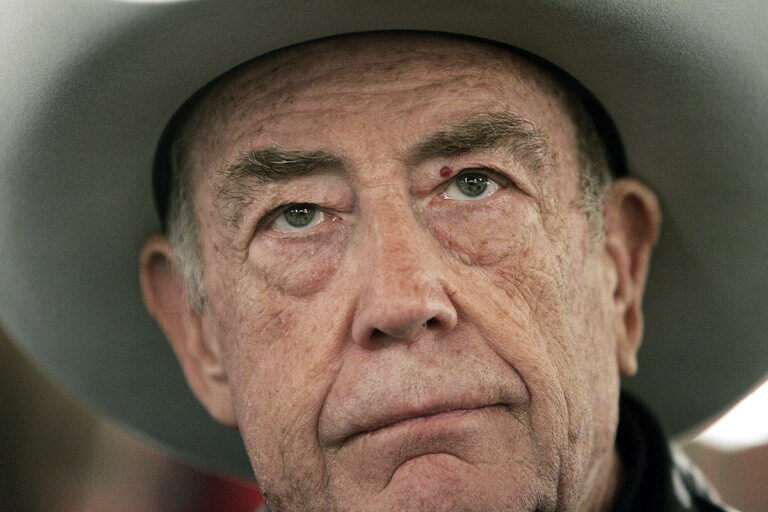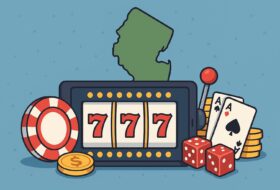
According to his family, the legendary Doyle Brunson passed away over the weekend. He was 89 years old and would have celebrated his 90th birthday in August. No cause of death has been revealed. His longevity was as impressive as his performance over the felt, with “Texas Dolly” having already survived four surgeries in a battle with cancer spanning six decades.
Brunson was a ten-time World Series of Poker gold bracelet winner with $6.2 million in lifetime tournament cashes. He was even more formidable as a cash game player, and a significant portion of his career took place before the concept of tournament poker existed. However, such games are private affairs, so there’s no knowing how much money he won from opponents over his lifetime.
Virtually everyone who has played live poker professionally has squared off against Brunson at some point. Twitter has seen an outpouring of sentiment from the poker community at his passing.
Daniel Negreanu, arguably the most visible face of poker in the 21st century, often appeared alongside Brunson on the televised cash game High Stakes Poker during poker’s boom years. The two have enjoyed a close friendship, and Negreanu tweeted that Brunson was his wife Amanda’s favorite player:
Legend
There will never be another Doyle Brunson
Doyle was @RadioAmanda favorite player by a mile
He will be missed by many, the Godfather of Poker#RIPDoyle pic.twitter.com/Y88BsrDhhP
— Daniel Negreanu (@RealKidPoker) May 15, 2023
The Last of the Old School
Brunson officially announced his retirement from poker at the end of the 2018 World Series of Poker. However, like many other poker players, he struggled to keep away from the game entirely. He reappeared at the 2021 WSOP Main Event but was eliminated on the second day of play. The following year, he signed on as a brand ambassador for the World Poker Tour.
Later in life, Brunson rubbed elbows with the elite of the online poker boom. However, he established his reputation at a time when poker games took place in back rooms, and players came to the table armed. His peers of the era were the likes of Stu Ungar, Amarillo Slim, Chip Reese and Johnny Moss, all of whom he outlived.
Before the Department of Justice cracked down on black market online poker, Brunson owned a poker site branded with his name: Doyle’s Room. However, he was never much one for online play himself. It’s a testament to his skill that he remained relevant while most purely offline players fell by the wayside.
He even became a reference point for how quickly new pros could progress in the online era. When Tom Dwan was at the peak of his popularity circa 2008, people speculated that he’d probably played more hands in a few years multi-tabling online than Brunson had in a lifetime of live play.
It’s no wonder that Brunson’s passing is a moment of such import for the poker community. In many ways, he was the last player still carrying a torch for a bygone era of the game.
Doyle’s Favorite Hand (No, Not That One)
Poker players worldwide will forever associate Brunson with an off-suited Ten-Deuce combo in Texas Hold’em. That’s because, in the early days of the World Series of Poker, he won the No-Limit Hold’em event in two consecutive years, holding those cards in the final hand each time.
If you hear someone say they’ve got a “Doyle Brunson,” those are the cards they mean.
However, the story Brunson loved to tell about himself was a Limit Hold’em cash game hand he played in his mid-20s. He discusses the hand in question in his strategy guide Super/System. In that recounting, he said he considers it the moment he became “a real top player.”
It occurred in a three-way pot with Johnny Moss and another player he doesn’t name. Brunson was drawing to an inside straight with a Jack-Ten and read Moss to be drawing for a smaller straight (e.g., Ten-Nine) on a King-Eight-Seven flop. After the turn and river helped no one, Moss was the first to act and made a bet.
Brunson felt sure his Jack high was better than Moss’s hand but couldn’t beat the third player’s. The conventional play would be to raise to try to force the third player out, whereupon Moss would also fold. However, Brunson suspected the third player would see through that and call. He decided that although raising offered worse odds to that player, just calling would show more strength.
So, Brunson called, the third player folded the winning hand, and sure enough, Jack high was good against Moss’s bluff. Flat calling as a bluff in a multi-way pot is undoubtedly an unorthodox strategy. But in Brunson’s mind, at least, it was the play that defined his early career.





